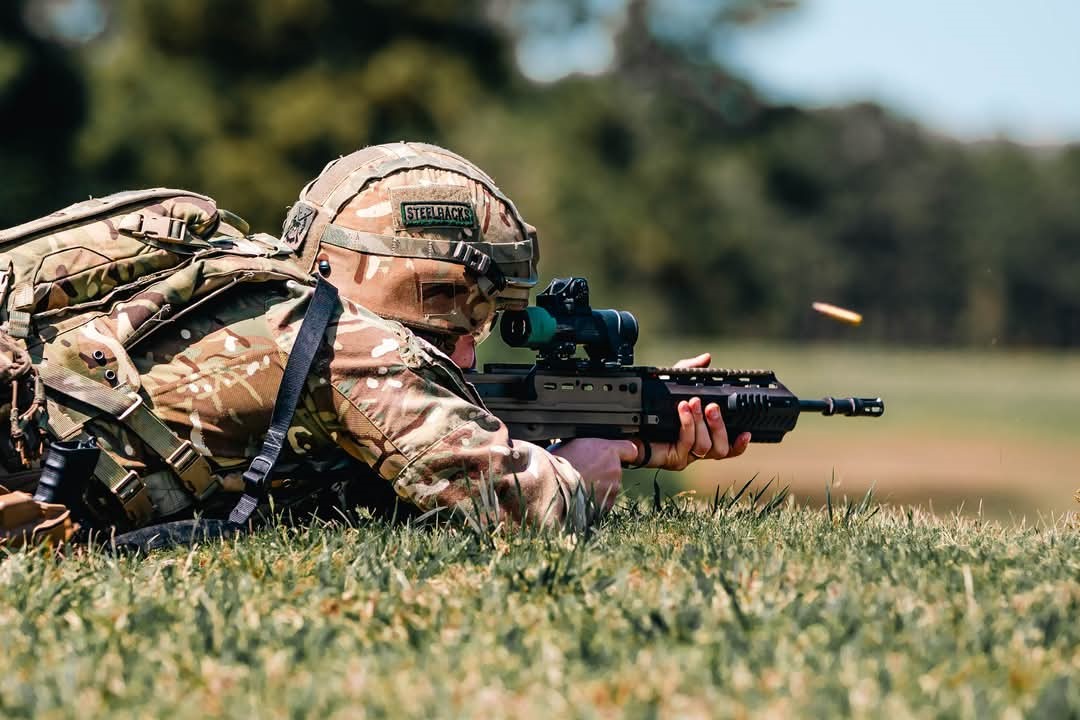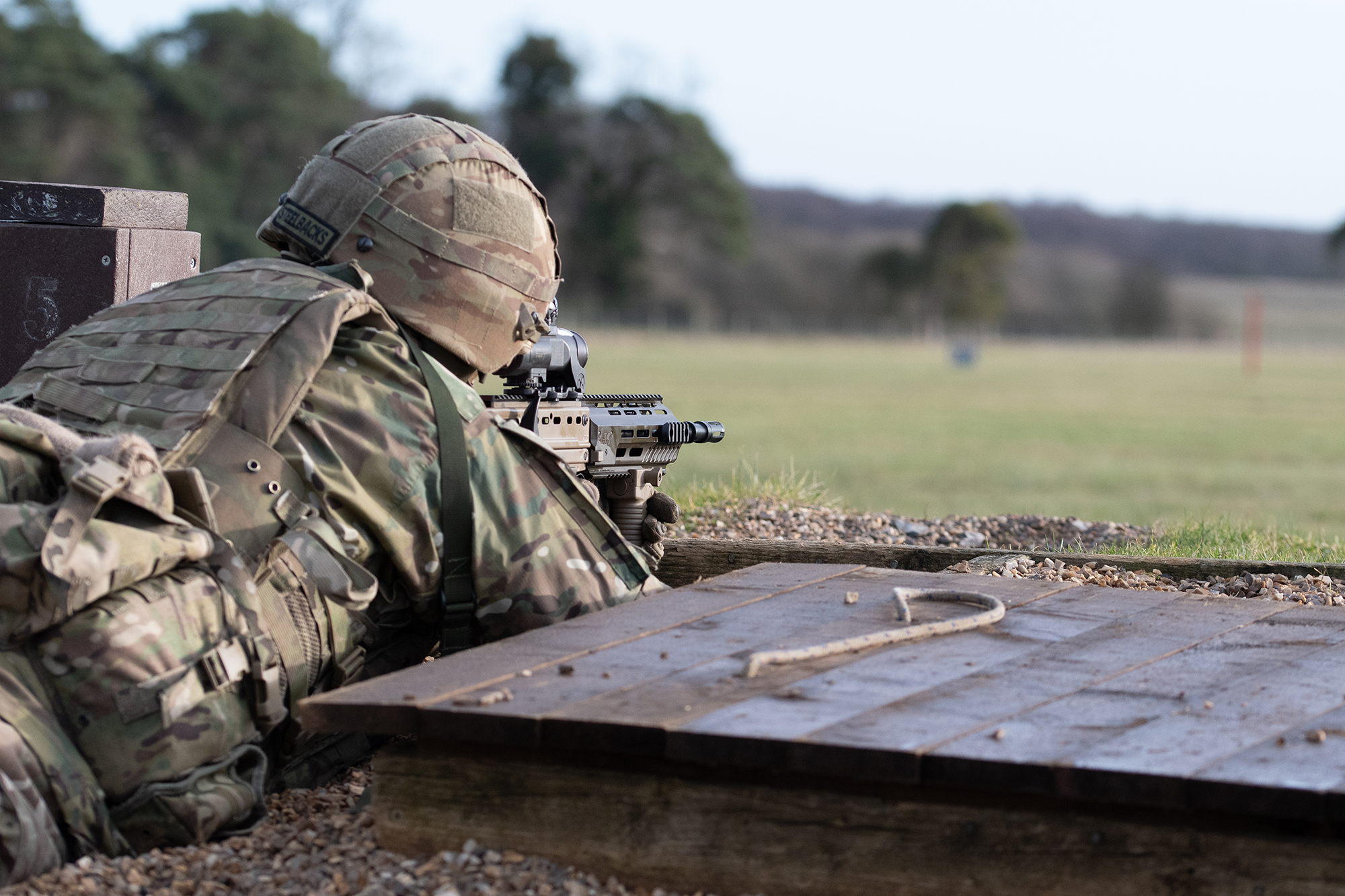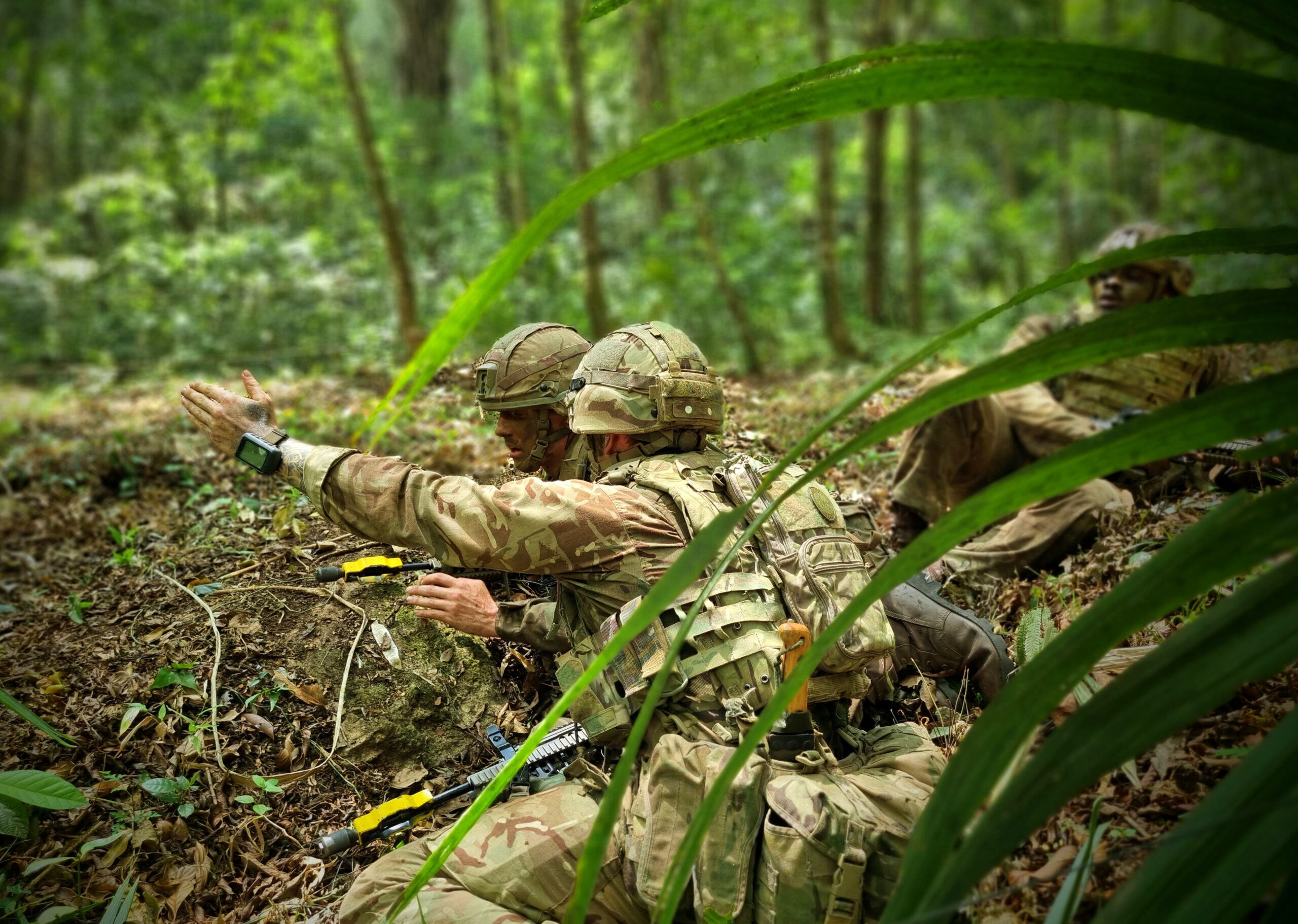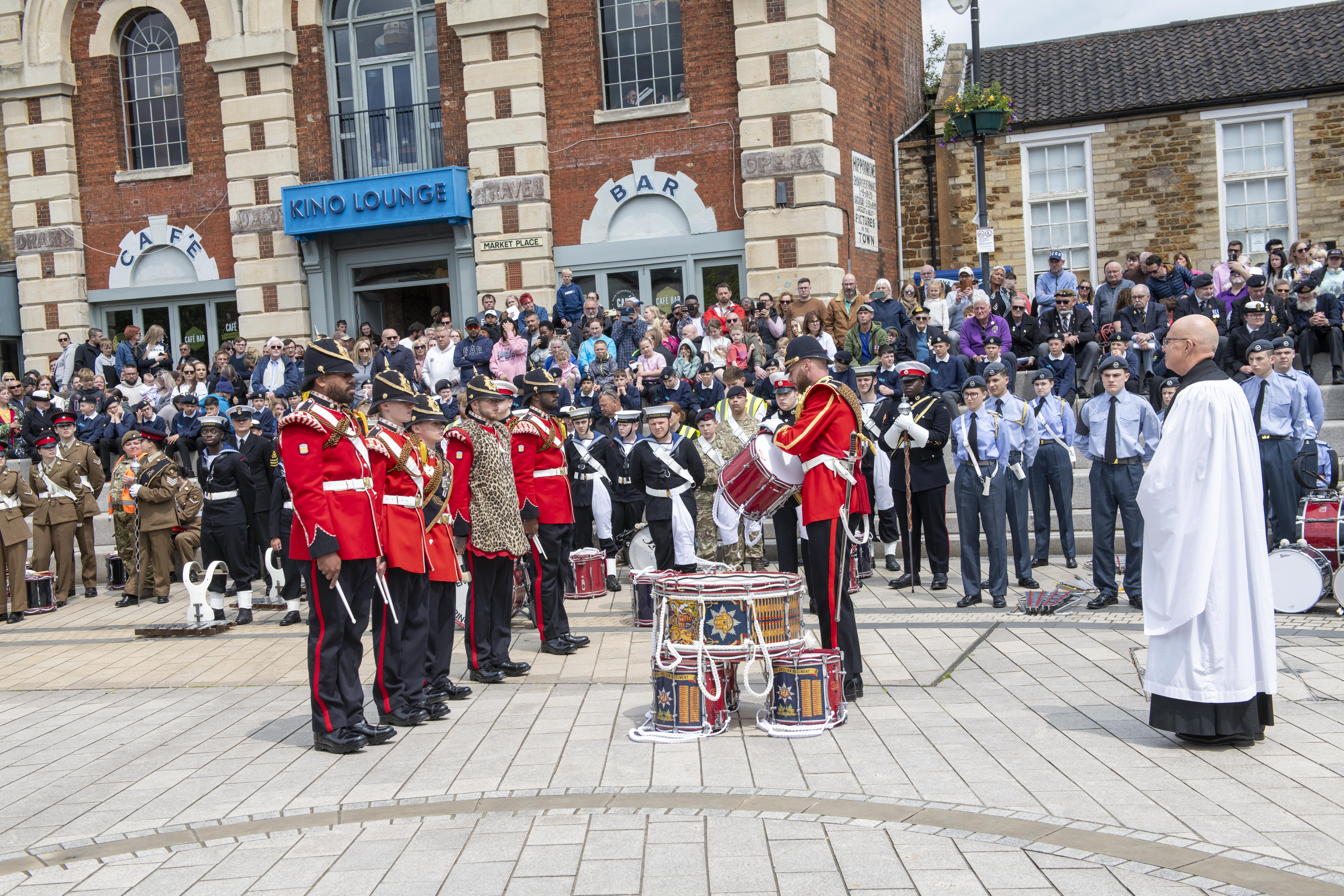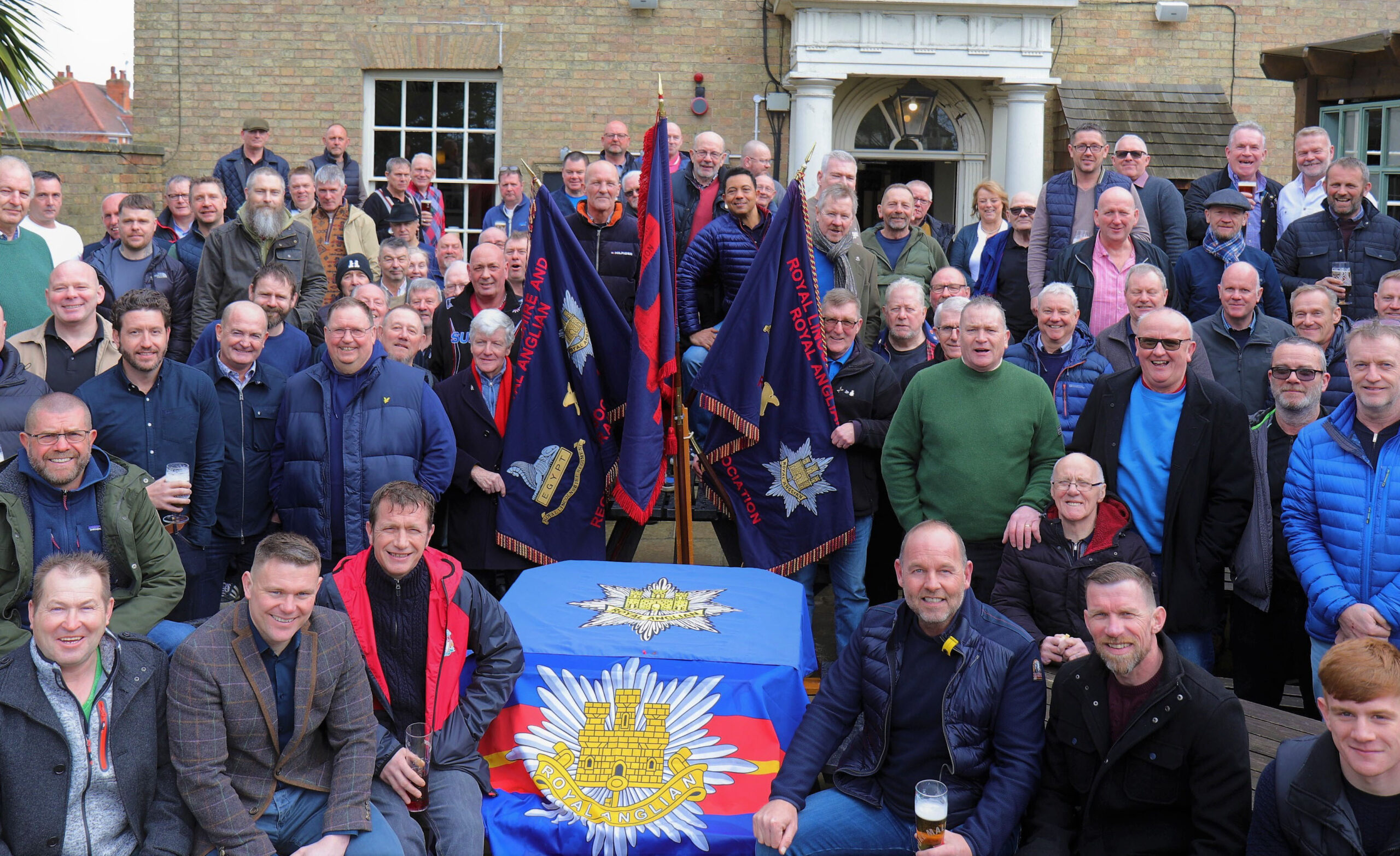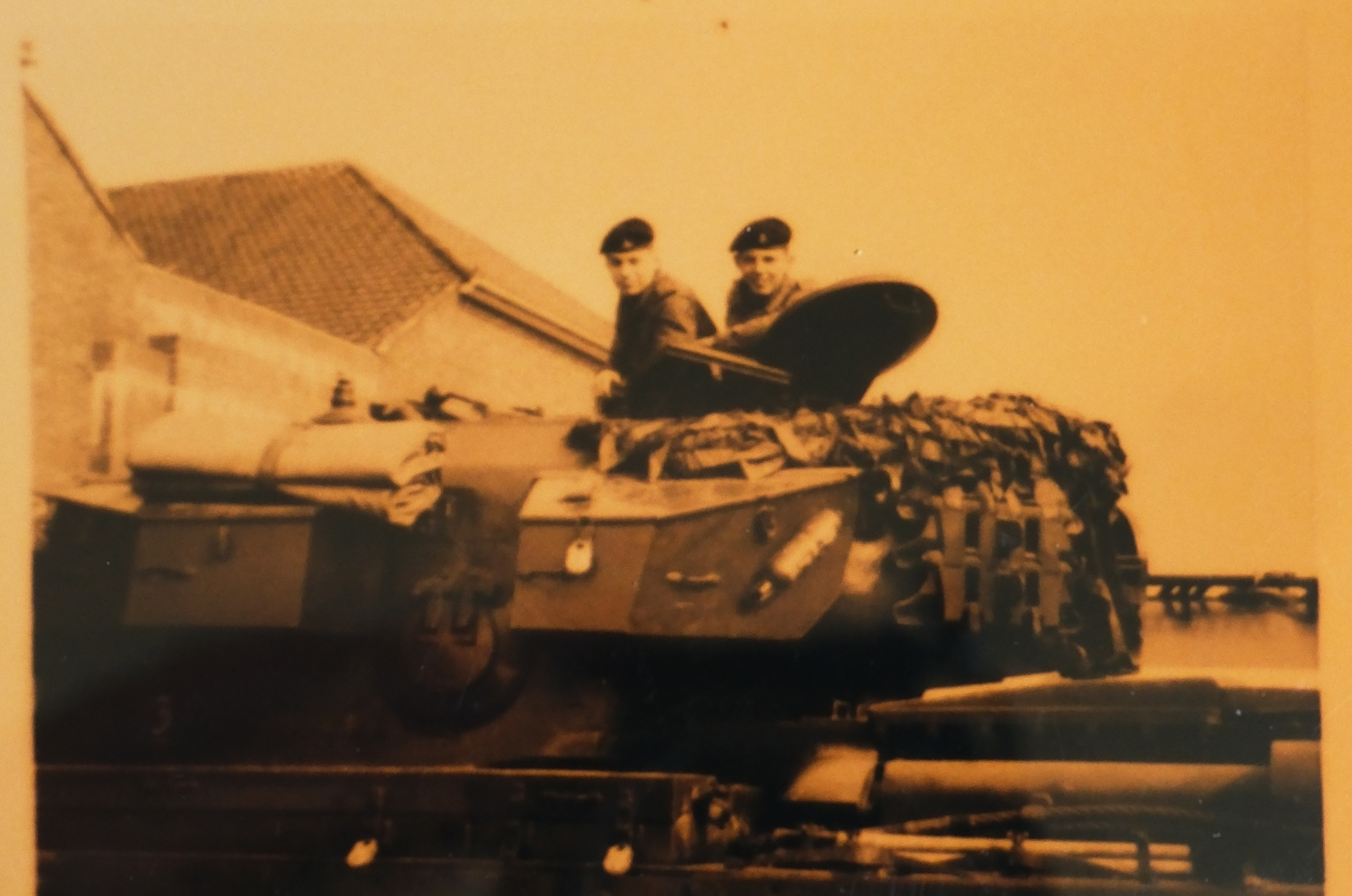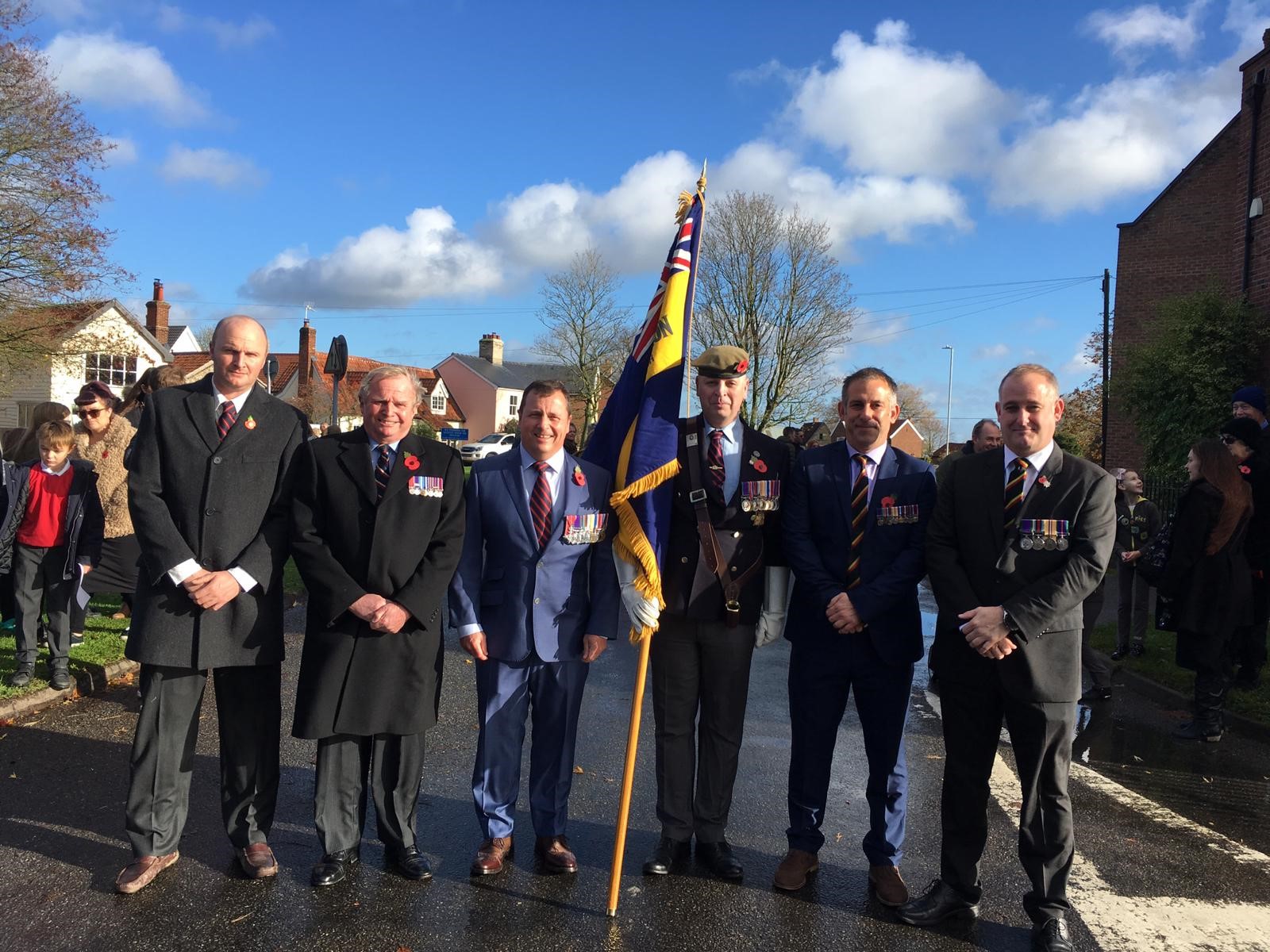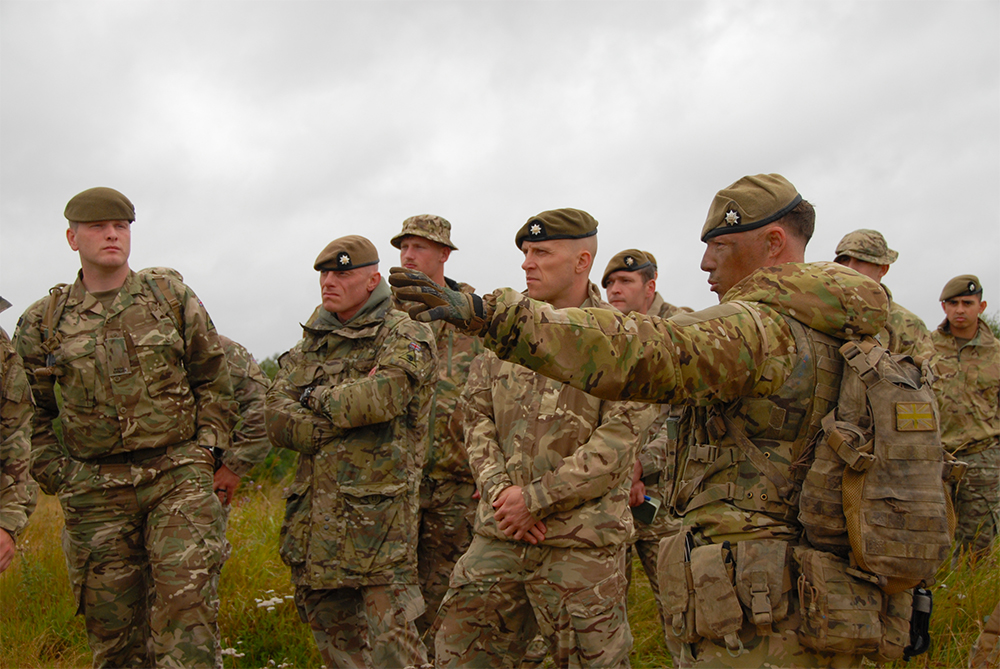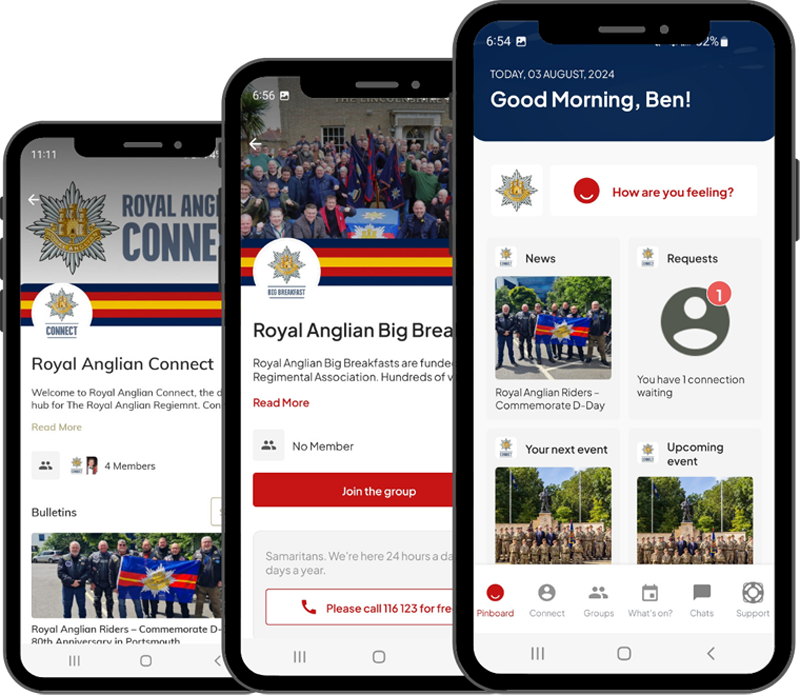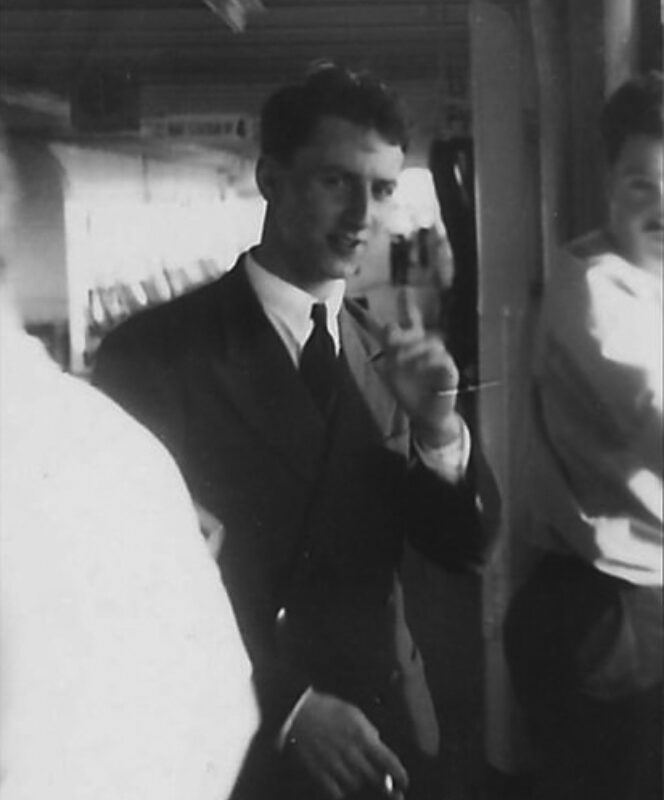
Obituary for Colonel Pat Hopper
After a long illness Colonel Pat Hopper died on 22nd December. He had a military career that spanned 45 year’s service to the Queen taking in operations in 4 different theatres, command of a Battalion and latterly providing a vital service to the Territorial Army.
Pat joined the Army straight from school, entering Sandhurst as one of the early post-war intakes in 1949. He was commissioned into 1 Suffolk in 1951 and went immediately to Malaya where the Battalion was employed in tackling the Communist bandits.
On 23rd May 1953 Pat was commanding a platoon of A Company 1 Suffolk when he was sent out to ambush a jungle track following information received. The ambush produced no results so the jungle nearby was searched revealing a newly constructed bandit shelter. Four bandits were then seen returning to the shelter, fire was opened and 3 were killed. Newspaper posters went up throughout the country exclaiming “The Suffolks Do It Again”. Pat rightly received a Mention in Despatches for this operation. He was further honoured when he carried the one of the Battalion Colours at the farewell parade in Kuala Lumpur.
The thrill of active service in Malaya drew Pat to volunteer for the Parachute Regiment. After qualifying he served with 3rd Battalion the Parachute Regiment in Aldershot. In 1956, in the middle of his 2 year tour, he took part in the Suez operation, dropping on to the El Gamil airfield. The operation was short lived but Pat recalled wading through sewage with his company while chasing elements of the Egyptian army.
In 1957 he left the Parachute Regiment and returned to 1 Suffolk initially as the Signals Officer and later Adjutant, again on operations, this time in Cyprus. He had much to do with the Intelligence Section which had among its number one Martin Bell. Cpl Bell had the temerity to correct the grammar of one of Pat’s signals. On seeing that his text had been altered Pat called Cpl Bell in and said “The trouble with you Cpl Bell is that you think too much”. Perhaps Pat would not have been so dismissive if he had known that 60 years later Martin Bell would win Celebrity Mastermind. This incident is referred to in Martin Bell’s recent book in which he says that Pat was “an able but slightly raffish officer – a man of deeds rather than words and not the least bit interested in grammar”.
While he was with 1 Suffolk Pat showed that he was a fine Regimental athlete, excelling at both Hockey, Rugby and Football as well as representing the Battalion at Cross Country running and pistol shooting. He was in the team that won the Far East Land Forces Major Unit Hockey Championship. This led to an Army trial for hockey. Later in life he took up golf which he thoroughly enjoyed until an old back injury from parachuting forced him to give up.
Pat, on becoming Adjutant, was regarded as a hard taskmaster, especially by his Assistant Adjutant Charles Barnes, who on one occasion, when orderly officer, was given a lift to the camp cinema by Pat. On arrival Charles found that he had left his hat behind and was therefore improperly dressed. When he told Pat this, Charles expected a lift back to collect his hat, but instead was told to report to his office the next morning to receive an extra duty. I think Charles only recently forgave him.
While in Cyprus he met and later married Gemma, thus breaking the hearts of many of the other young and not so young officers. Gemma has been a wonderful Army wife, supporting Pat in his various postings around the world, especially when he later commanded 5 Royal Anglian in Peterborough.
From the excitement of Cyprus the Battalion returned to Shorncliffe in preparation for the amalgamation with 1 Royal Norfolk in Iserlohn later that year. Pat was posted to HQ 4 Division in Herford as a staff captain, so he missed the ceremonies associated with amalgamation.
Two years later he was back with the Battalion in Harwich, again as Adjutant. It was clear that various CO’s recognised that, with Pat as Adjutant, the day to day management of the Battalion was in firm and sensible hands. Patrick Stone recalls that when he arrived back in the Battalion he was unaware of the post –amalgamation tensions between old Norfolks and Suffolks that were still evident. The infamous Arthur Campbell was the CO and Pat was the Adjutant, to whom Patrick reported on his first day. After a brusque “how do you do”, Pat marched him in to meet the CO. On emerging from the CO’s office, Pat looked at him hard and said, “Norfolk or Suffolk?” Not thinking Patrick said, “either, it really doesn’t bother me”. “Well it jolly well bothers the rest of us!” said Pat – “now clear off and join your company.”
The Battalion was then deployed to British Guiana for an emergency tour. The stories of their time are legion. After they had been in George Town a few days, Patrick Stone was summoned to see the CO, who informed him that he was the only officer in the Battalion with any colonial experience and did he know anything about controlling civil disobedience? On saying that he did have some experience he was told to get on and get the Battalion trained by the following day! As Patrick left the CO’s office, Pat whispered in his ear, “Battalion HQ is far too busy for any of this ruddy nonsense, so leave us out of it!”
For the next 10 years Pat spent most of it on the staff in a variety of postings – Shrewsbury, Herford again and Bassingbourn. But there were some returns to Regimental duty, in Singapore as a loan officer and back to 1 Royal Anglian in Catterick as second in command. But no doubt the pinnacle of his career came in 1973 when he was selected to command 5 Royal Anglian in Peterborough.
The highlights of his time in command were when Princess Alice Duchess of Gloucester consented to a special relationship with 5 Royal Anglian. She also accepted an invitation to attend the annual officers’ cocktail party when the drill hall was transferred into a garden party. The other highlight was the presentation of Colours to all the Battalions in Tidworth in 1974.
Pat decided to retire early in 1977 and was selected as the deputy Secretary at Territorial Army and Volunteer Reserve Association in Chelmsford and then later took up the Secretary’s post in 1986.
When I arrived in Colchester from Norway in the early 90’s Pat was already the Secretary. Very early on he invited me to lunch at a Pub near Chelmsford to tell me about the TA and the work of his Association, which I greatly appreciated. The waitress who came to take our order was dressed in a pink shell suit with white shoes, and she had platinum blonde hair and lots of make-up. As she approached he nudged me in the ribs and said “You know you are in Essex now”. I think it was his favourite pub.
There is no doubt that Pat really enjoyed his work at TAVRA and he was good at it too. I learnt a lot from him about the TA especially as I had not served with them before. Pat particularly enjoyed the opportunities for a bit of entrepreneurial wheeler dealing. He negotiated a deal with Sainsbury, of which he was particularly proud, whereby he sold them a plot of TAVRA land for sufficient money to build an excellent premises for Cambridge University OTC and a Royal Anglian TA Company as well. I am sure that if Pat had gone into business himself his energy, and negotiating skills would have made him a real success. Sadly the Civil Service has now recovered any such free-thinking activity and so no latter-day Pats can follow his lead.
While he was at Chelmsford Pat had an immense loyalty to the Suffolk Regiment Old Comrades, becoming the President of the Hemel Hempstead Branch and for many years playing an active part on the Council of the Suffolk Regiment. At the same time he maintained his links with the Royal Anglian Regiment when appointed an Honorary Colonel. He was also proud of being selected as a Deputy Lieutenant for the County of Essex.
He was regarded by his friends and comrades, without exception as a thoroughly nice man, who everyone liked. He had a great sense of humour, a fund of stories and was always positive and cheerful. He was a loyal, conscientious and brave officer who we will all miss.
On behalf of all who knew him in the Suffolk Regiment, the 1st East Anglian Regiment and the Royal Anglian Regiment, may I offer our sorrow, sympathy and condolences to his wife Gemma, to his daughter Jo and to his grandchildren Tiggy. Simon and Ben.


